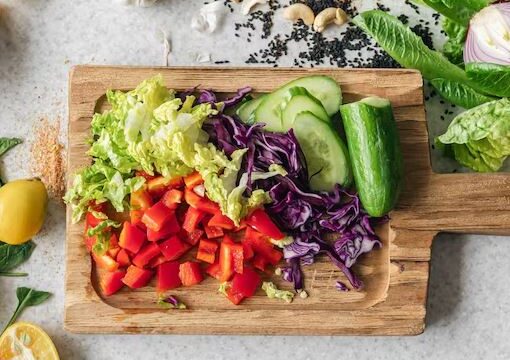Food has always been more than just nourishment.
It brings people together, opens conversations, and strengthens human connection.
In today’s busy world, eating is often treated as a personal routine or a rushed necessity.
Yet, the way we approach food can also influence how easily we connect with others. Using food intentionally to support social engagement can make gatherings more enjoyable, conversations more natural, and relationships more meaningful. In many ways, the meals we share can help us feel grounded, open, and receptive to others. What we eat can influence our energy levels, mood, and even confidence in social settings. Choosing foods that nourish both the body and the mind can help you feel more balanced and at ease around people.
The Connection Between Nutrition and Social Behavior
Our brains and digestive systems work closely together, and this relationship can affect how we interact with others. A balanced diet helps stabilize blood sugar levels, which supports steady energy and emotional stability. When the body feels nourished, the mind feels calmer and more centered—making social situations easier to enjoy. Nutrients such as omega-3 fatty acids, magnesium, zinc, and B vitamins all play important roles in regulating mood and cognitive function. Foods rich in these nutrients can help reduce irritability, fatigue, or anxious energy that sometimes make social interactions more difficult. For example, a diet that includes leafy greens, nuts, seeds, whole grains, and colorful vegetables can help create a sense of vitality that makes connecting with others more natural and enjoyable.
Choosing Foods That Encourage Comfort and Openness
Meals that support social engagement often start with comfort. When food feels nourishing, light, and satisfying, it helps the body stay relaxed during conversations or group activities. Whole foods like roasted vegetables, lentil soups, grilled fish, and whole-grain pasta are great for maintaining steady energy without heaviness. It’s also worth considering how food affects the digestive system. Heavier, processed foods can sometimes cause discomfort or sluggishness, which may make socializing less pleasant. On the other hand, fiber-rich meals and moderate portions promote easier digestion, supporting a feeling of ease and presence. Social comfort is also influenced by hydration. Drinking enough water or herbal teas can improve focus and reduce tension. Dehydration can lead to fatigue or irritability, both of which make it harder to stay engaged. Including water-rich foods like cucumbers, oranges, and berries in your meals can help keep your body refreshed and ready to connect.
The Role of Shared Meals in Building Relationships
Sharing food has always been a form of social bonding. From family dinners to community potlucks, these moments invite people to exchange stories and strengthen connections. Sitting down for a meal slows time in a way that encourages conversation and listening. Creating these shared experiences does not require elaborate cooking. A simple, home-cooked meal often brings more warmth than an expensive one. The act of preparing food for others can express care, while sharing a table allows people to build trust through small gestures—offering a serving, passing a dish, or tasting something new together. Cooking together is another powerful way to connect. When people collaborate in the kitchen, they naturally communicate, coordinate, and share creativity. These moments can ease social barriers and foster genuine relationships. Even making something as simple as a salad or smoothie together can turn into a joyful experience.
Foods That Support Calm and Positive Energy
Certain foods naturally help promote calm and positivity, which are valuable in social environments. Complex carbohydrates like oats, quinoa, and brown rice help the body produce serotonin, a neurotransmitter linked to relaxation and well-being. These foods can help you feel more at ease before social gatherings. Magnesium-rich foods like spinach, almonds, and avocados support muscle relaxation and reduce tension. Including them in your meals may help you stay composed and focused when talking or presenting ideas. Omega-3 fatty acids found in walnuts, chia seeds, and salmon contribute to brain health and emotional balance, supporting clear thinking and empathy. For a natural energy boost that doesn’t cause jitters, fruits like bananas and berries provide gentle sugars along with vitamins and antioxidants. Combined with protein sources such as yogurt, beans, or tofu, they create steady fuel for the mind and body. This type of nourishment helps prevent mood swings that can make social interaction less enjoyable.
Mindful Eating as a Social Skill
Mindful eating can transform the way you connect with others through food. Paying attention to flavors, textures, and aromas creates a sense of presence that encourages appreciation for the moment. When practiced during shared meals, mindfulness helps people slow down and engage more fully with each other. Avoiding distractions like phones or screens during meals makes space for genuine communication. Looking up, listening actively, and showing interest in others’ stories often lead to more fulfilling interactions. By combining mindful eating with good nutrition, social engagement becomes a natural and uplifting part of everyday life.
Creating Social Rituals Around Food
Food can serve as a meaningful anchor for social rituals—regular, intentional gatherings centered around nourishment and connection. Weekly dinners with friends, weekend brunches, or neighborhood cookouts help maintain a sense of belonging. These routines don’t need to be elaborate; consistency matters more than complexity. If you live alone, inviting a neighbor for coffee or organizing a potluck can be a gentle way to stay socially active. Hosting doesn’t have to mean pressure—it can simply be about creating a warm space where people feel welcome. Keeping meals balanced and wholesome can make everyone feel both comfortable and energized.
Building Confidence Through Nutrition
Nutrition and confidence often go hand in hand. When the body feels healthy and balanced, it’s easier to engage socially with assurance and authenticity. Nutrient-dense meals support skin health, energy levels, and mental clarity—all of which contribute to how comfortable you feel expressing yourself around others. Limiting excess caffeine and refined sugar can prevent the nervous energy that sometimes leads to restlessness or overtalking. Instead, steady nourishment through whole foods allows for calm confidence—a quality that enhances any social experience.
Final Thoughts
Food can be one of the simplest and most enjoyable ways to strengthen social engagement. Choosing wholesome meals, practicing mindful eating, and creating regular opportunities to share food can transform not just how you eat, but how you relate to others. In every culture, the act of eating together has always represented trust and connection. When approached with awareness, the foods we choose can support emotional balance, help us communicate more openly, and make every shared moment around the table a celebration of health and humanity.






